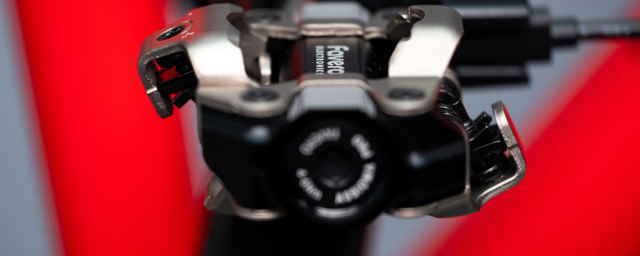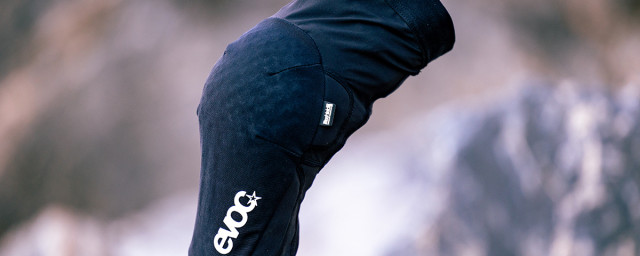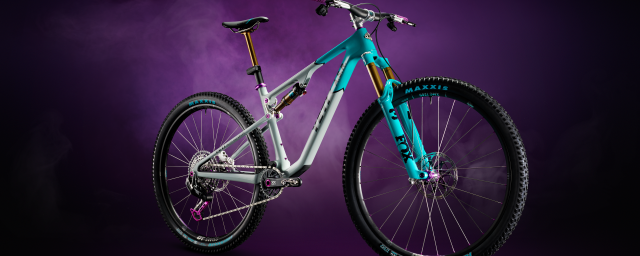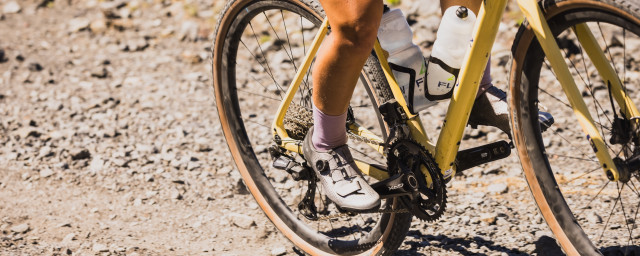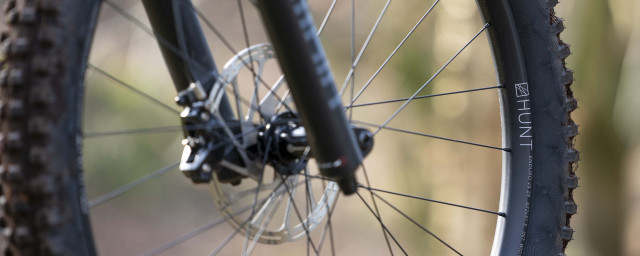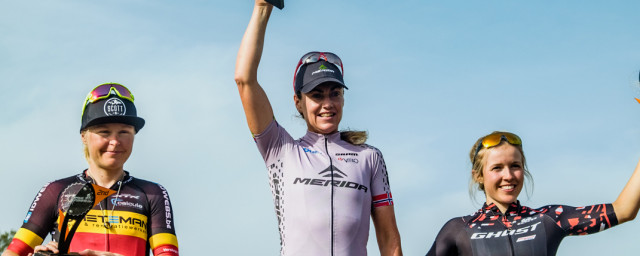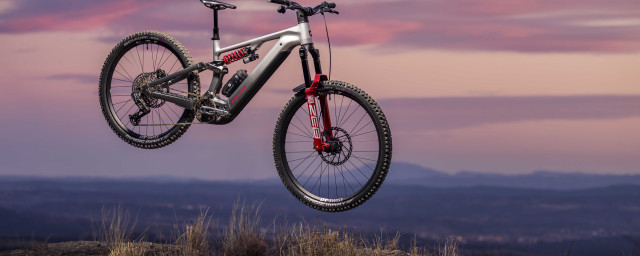Industry Insider – MTB career insights with Chris Porter
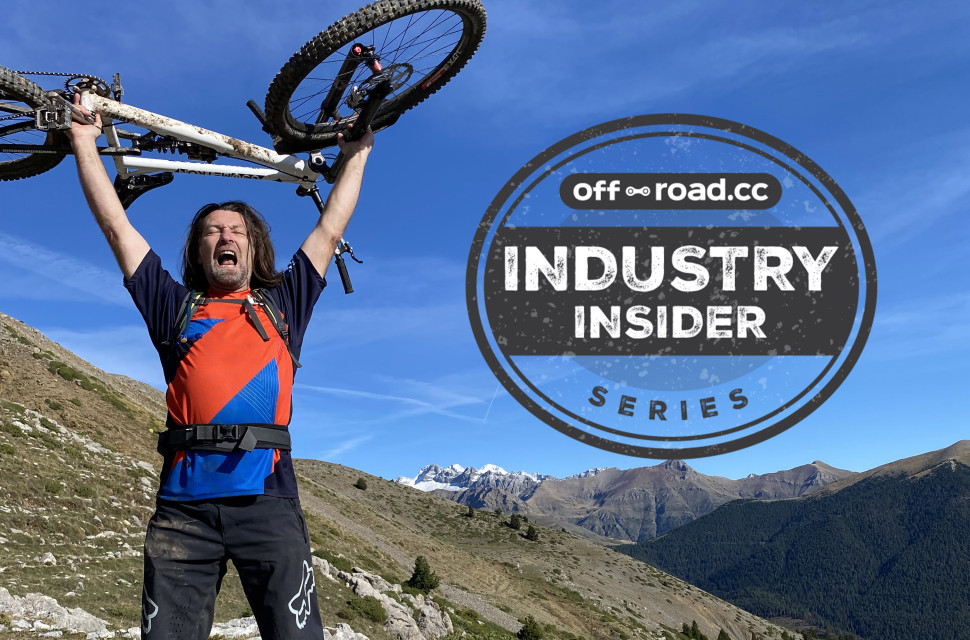
[Words by Steve Thomas - Photography supplied by Chris Porter]
With a gravity-assisted passion and commitment to mountain biking, Chris Porter is a legendary wise man of the bike suspension industry and is a passionate and individually sprung character.
- Industry Insider: MTB career insights with Katy Curd
- Industry Insider: MTB career insights with Sarah Leishman
- Industry Insider: MTB career insights with Andi Sykes of The Rider Firm, Privateer and Hunt
After switching from motorised to pedal bikes that could run fast down hills, Chris was lured into the gravity side of the sport early in the 90s. Soon after that, he took his learnings and theories of motorcycle suspension and translated them into mountain bike terms – and then bolted them all together to make them work better. From tweaking early suspension forks to becoming the UK’s Fox suspension distributor, Chris has become a suspension and design master, a rebel with a cause and a force of rocky trail nature.
In your own words, who are you and what do you do?
Existential question right off the bat! I’m a 58-year-old crash-damaged, MTBer who loves to travel (overland, no flying) and still gets a kick out of freewheeling bicycles, off-road, downhill. I’ve been running MTB suspension businesses since 1995.
What is your job?
More and more part-time these days. Working with my colleague Jack at Mojo Rising, doing sales, service and development work with EXT for their range of dampers and forks.
How did you get into what you do?
I couldn’t afford to start road racing motorcycles so I went for the next obvious ‘most-committed-to-the-front-tyre-contact-patch’ sport, DH MTB. There were lots of suspension tuning workshops and experts in MX and road-racing motorcycles but none specialising in MTB in the UK, so I thought there was a gap in the market. The gap is narrowing now, everyone and his dog is tuning, data-logging, race-prepping and upgrading but we endure.
How long have you been working in the bike industry?
Since 1995(ish…).
How have things changed since you started regarding suspension evolution and design?
In some ways remarkably little, and in some ways remarkably lots. Back in the 1990s, there were a lot of people bending and welding metal into bicycle shapes with very few patents. Now, pretty much 95 per cent of the MTB industry output is manufactured in Taiwan or China – and most high-end designs are made with a material unsuitable for off-road riding. And most designs are patented up their eyeballs.
As for the dampers and forks, see above; all sorts of attempts to create electronic damping, and lots of ‘lockouts’ are being sold on bikes which apparently pedal like a hardtail.
I guess, the biggest change is that the market is now completely dominated by two giant companies that manufacture everything in Taiwan, rely on share prices to borrow money to underwrite running costs and pad a failing business model, which leads to poor quality control and marketing driven ‘design innovation'.
Is there anything you wish you could change about your role/job?
That I could be 15 years younger, and Britain still had a manufacturing base? Seriously, no, nothing much. I enjoy a large part of what I do and the bits that are not so enjoyable are outside my control.
What does the average week look like?
No such thing! It flows with the weather and customer interactions. Sometimes there are test rides with customers, product testing, sometimes actual nuts and bolts and keyboard-based work, and sometimes just knocking off early before the dry limestone trail at work gets rained on.
What advice would you give someone who wants to do your job/what you do?
Don’t rely on the data when it comes to actual set-up with actual riders, and remember it is nothing like suspension set-up for cars or motorcycles, the greater part of the sprung mass (the rider) is mobile and has huge inputs into the suspension. So it becomes a human craft enterprise rather than a simple engineering exercise. Put the time in to understand a rider’s strong position and the way a bicycle with suspension turns. Hours of craft, not spreadsheets...
What do you like most about what you do?
Hours of craft – not spreadsheets!
If you weren’t doing this, you would be?
On previous form, possibly a warehouse forklift truck operative. But, in reality, it would have to be something self-employed as I’m now completely unemployable.
What have been some of the highlights of your career?
Too many to list, but I’ll have a go – after saying that I'm certainly proud of the kids who have come through Mojo’s orbit and ended up in very influential positions within the MTB industry, and am proud of the help we’ve given to MTB racers, racing and startups over the years.
Finally being able to afford to go motorcycle racing during my 40s was a highlight. Bit late, but two wheels are always a treat whatever age.
Sponsoring the SDA DH racing was a highlight, we spent so much time in Scotland at one point that I started to have an accent. Being the biggest Fox distributor worldwide was a highlight, we were almost in the top ten customers with Trek and Scott and Specialized and the like, which didn’t stop Fox (the PLC, not the mostly excellent staff) from shafting us, and giving me another highlight of being able to work collaboratively with two innovative European companies - Nicolai and EXT - Bloody Brexit (hurt that).
Every Fort Bill was a highlight, every Mojo trail diary was a highlight. Riding the Honda RN01 was a highlight, just having delivered in a locked box direct from HRC in Japan was a treat. Working with Martyn Ashton on his suspension before his accident was a highlight but, bigger, was working with him and his like-minded buddies to get him back on a bicycle in a sit-ski seat.
Tears were wiped away! I banged my head a few times, so to anyone who I’ve had a ‘highlight’ ride with and not listed, blame the memory.
The industry finds itself in a tough situation in terms of the cost of living. Do you see it recovering any time soon and, if so, what will brands need to do to stay relevant and afloat?
Some will have to go bust. The industry is bloated, overstocked and financialised to the point of collapse. It is not so much ‘cost of living’ as being reliant on Taiwan, the banks and the moneymen.
Obviously there is less money around but, in an industry where brands are at the mercy of manufacturers and investors, the ability to simply cut your cloth accordingly for a few years is not there. So, most have ended up with two full model years of bikes and components which are not selling at the rates that they did during COVID-19.
We’ll have to wait until that sells through, or ends up hacksawed into pieces in skips. I don’t actually see a recovery in this late-stage capitalism to be honest. Who do you sell a bike to in 10 years? By then, Musk, Bezos, Arnault, Zuckerberg and Gates will have all of the money in the world and they’ll be too old to ride a bike.
What do you dislike most about the cycling industry?
1) Its reliance on Taiwan and the pretence that a brand makes its own bicycles in its own factory.
2) The UCI. I don’t think they have ever been a force for good in MTB, unfortunately.
3) Marketing.
How do you keep things balanced when your hobby becomes your job (basically how to maintain work-life balance when bikes is your hobby and your career)?
Difficult! Not sure I’m the person to ask about that, still working on it to be fair.
It's been quite a twisted trail you've been on, with a few surprises along the way. How have you transitioned through these phases and what comes next?
You just respond to the hand you’ve been dealt and do your best to keep moving. What comes next? Hopefully, I’ll be able to keep riding until I get floated off into the sunset in my burning Viking longship, full of all the excess components and raw materials from my various failed projects. I hope it floats with all that tonnage in there!



